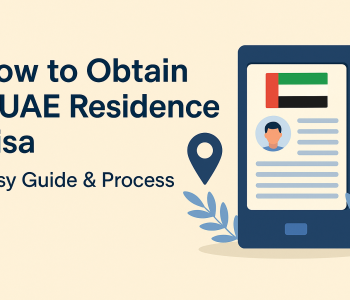 PRO Services
PRO Services
Navigating E-Commerce Success in the UAE: Do You Need…
The explosive growth of online businesses has transformed the way commerce operates, and the UAE is no exception. If you’re considering selling online in the UAE, one question looms large: “Do I need a license?” In this comprehensive guide, we’ll walk you through the essentials, covering license types, activities they cover, pricing, timelines, and how Beyond View can be your key to hassle-free e-commerce success.
1.1 Understanding E-Commerce License Types in the UAE
Setting up an e-commerce venture in the UAE involves making strategic decisions, and one of the first considerations is the type of license your business needs. The UAE offers different license structures, each catering to specific business models. Let’s explore the primary types of e-commerce licenses:
1. Free Zone E-Commerce License:
Free Zones are designated areas that offer distinct advantages to businesses, including 100% foreign ownership, tax exemptions, and simplified import/export procedures. Free Zone E-Commerce Licenses are particularly popular for online businesses. They provide an exclusive environment for businesses focused on international trade, allowing you to operate with minimal bureaucracy and maximum flexibility.
2. Mainland E-Commerce License:
Operating within the UAE mainland has its own set of advantages. A Mainland E-Commerce License grants you access to the entire local market. While it may involve partnering with a local sponsor or service agent, it opens the doors to a broader customer base, including the lucrative local consumer market.
3. Dual License:
Some Free Zones now offer a dual license that allows businesses to operate both within the Free Zone and in the local market. This setup offers the best of both worlds, enabling businesses to tap into global opportunities while also catering to local customers.
4. Virtual Commercial License:
In response to the growing trend of digital businesses, certain Free Zones have introduced Virtual Commercial Licenses. These licenses are designed for businesses that operate online and may not require a physical office space. They provide a cost-effective solution for entrepreneurs looking to establish an online presence.
5. Professional E-Commerce License:
For businesses offering professional services online, such as consulting or digital marketing, a Professional E-Commerce License may be more suitable. This license is tailored for businesses that provide services rather than physical products.
Choosing the Right License:
The choice of an e-commerce license depends on various factors, including the nature of your business, target market, and growth strategy. Free Zone licenses are often favored for their flexibility and tax benefits, while Mainland licenses are ideal for businesses focusing on the local market.
Understanding the nuances of each type of e-commerce license is crucial for making an informed decision. Beyond View is here to guide you through this process, ensuring that the chosen license aligns with your business goals and sets the stage for success in the thriving e-commerce landscape of the UAE.
1.2 Activities Covered by E-Commerce Licenses
When diving into the world of e-commerce in the UAE, understanding the specific activities covered by your chosen license is pivotal. The scope of your license determines not only what you can sell but also how you can conduct your business. Let’s explore the diverse range of activities typically covered by e-commerce licenses:
1. Sale of Physical Goods:
Your e-commerce license allows you to engage in the sale of physical goods. This encompasses everything from fashion and electronics to home goods and beyond. Whether you’re importing goods for resale or manufacturing them locally, your license facilitates the legal sale and distribution of tangible products.
2. Digital Product Sales:
E-commerce isn’t limited to physical items. Many businesses thrive by selling digital products such as e-books, software, online courses, and digital artwork. Your license should explicitly cover the sale of these intangible goods, ensuring compliance with local regulations.
3. Service-Based Offerings:
Some e-commerce businesses are service-oriented. If your platform offers services such as consulting, design, or digital marketing, your license should specify the provision of these services online. This is particularly relevant for Professional E-Commerce Licenses.
4. Subscription-Based Models:
Many successful e-commerce businesses operate on a subscription basis. This could include subscription boxes, streaming services, or any recurring billing model. Ensure that your license accommodates this type of business model, providing the necessary framework for subscription-based offerings.
5. Affiliate Marketing:
If your e-commerce strategy involves affiliate marketing, where you promote other companies’ products and earn a commission on sales, your license should explicitly permit this activity. It ensures that your business operates within the legal framework of affiliate marketing regulations.
6. Dropshipping:
E-commerce entrepreneurs often leverage dropshipping, a model where you sell products without holding them in stock. Instead, the product is shipped directly from the supplier to the customer. Clarify with your license provider that your chosen model, like dropshipping, aligns with the licensed activities.
7. Online Auctions:
For businesses engaging in online auctions, where customers bid on products, specific licensing provisions may apply. Your e-commerce license should cover the legalities associated with auction-based transactions.
8. Cross-Border Sales:
E-commerce in the UAE often involves international transactions. Your license should address the legalities of cross-border sales, including import and export regulations, to ensure seamless global operations.
Understanding the breadth of activities covered by your e-commerce license is crucial for operating within the bounds of the law.
1.3 Decoding the Pricing of E-Commerce License
Embarking on your e-commerce venture in the UAE requires a clear understanding of the financial investment involved, and a significant aspect of this is the pricing structure for e-commerce licenses. Let’s delve into the nuanced details of what determines the cost of obtaining an e-commerce license:
1. Type of License:
The type of e-commerce license you choose significantly influences the cost. Free Zone E-Commerce Licenses often come with different fee structures compared to Mainland E-Commerce Licenses. Additionally, specialized licenses like Virtual Commercial Licenses may have distinct pricing models.
2. Free Zone Fees:
Free Zones in the UAE offer a range of advantages for e-commerce businesses, including tax exemptions and simplified import/export processes. However, each Free Zone may have its fee structure. Understanding the fee breakdown is essential for budgeting accurately.
3. Additional Services:
Many business setup agencies, including Beyond View, provide additional services bundled with the license application. These services may include legal assistance, document preparation, and liaising with the relevant authorities. Clarify what services are included in the overall cost.
4. Physical Presence Requirements:
Some Free Zones may require businesses to maintain physical office spaces, while others, like those offering Virtual Commercial Licenses, eliminate this necessity. The need for a physical office can influence costs, so it’s crucial to choose a setup that aligns with your business model.
5. License Duration:
E-commerce licenses are typically issued for specific durations, ranging from one to several years. Longer durations often come with cost advantages, but it’s essential to weigh the upfront investment against the long-term benefits for your business.
6. Business Activities:
The specific activities your business intends to engage in under the e-commerce umbrella can impact the pricing. For instance, a license covering a broad spectrum of activities may have a different cost structure than one tailored for a niche market.
7. Renewal Fees:
Consider not only the initial setup costs but also the renewal fees associated with the e-commerce license. Knowing the renewal structure helps you plan for ongoing operational expenses.
8. Professional Assistance:
Engaging the services of a business setup agency like Beyond View introduces an additional cost. However, the expertise and efficiency they bring to the process can often streamline the setup and save you valuable time and effort.
Understanding the pricing intricacies of e-commerce licenses is pivotal for making informed decisions. Beyond View is committed to providing transparent insights into these costs, ensuring that you embark on your e-commerce journey with a clear financial roadmap. Contact us to explore the pricing details tailored to your specific business goals and requirements.








